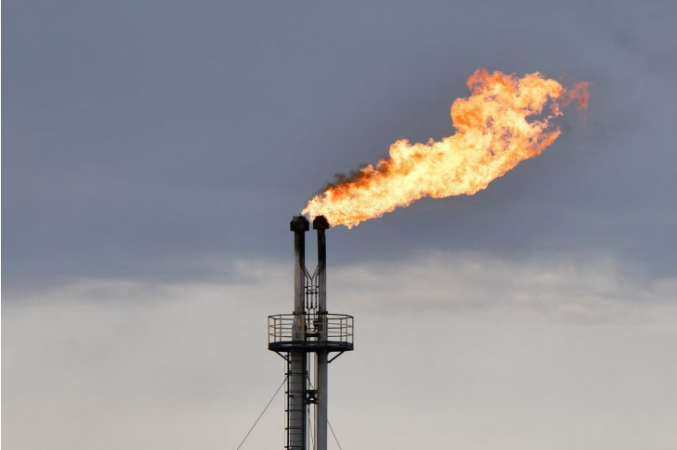
MOSCOW: The OPEC+ alliance of oil exporting countries on Wednesday decided to cut production drastically in an effort to support falling oil prices. The decision could deal another blow to an already fragile global economy and raise politically sensitive pump prices for American motorists just ahead of crucial national elections.
After meeting in person for the first time since the start of the Covid-19 pandemic at the OPEC oil cartel's headquarters in Vienna in November, energy ministers cut production by more than expected by 2 million barrels per day.
The decision, according to the group, was made due to the "uncertainty surrounding the outlook for the global economic and oil market". Saudi Arabia's Energy Minister Abdulaziz bin Salman emphasized the cartel's claimed responsibility for safeguarding stable energy markets. "We are here to live as a restraining force, to bring stability.
Also Read: Haiti in a "low-intensity civil war" as the economy collapses and violence increases
The significant reduction in the amount of crude that OPEC+ sends to the world, in addition to a token reduction last month, represents an abrupt change from months of shedding significant cuts made during the height of the pandemic. Since Russia invaded Ukraine, global energy prices have fluctuated wildly along with demand, contributing to inflation that is affecting economies all over the world.
Because OPEC+ members have already fallen short of their quotas, the effect of production cuts on oil prices – and consequently the price of gasoline made from crude oil – will be somewhat limited.
The election comes amid an energy crisis caused by Russia cutting natural gas supplies to Europe, whose leaders claim it is retaliation for backing Ukraine and imposing sanctions. The decision could help coalition member Russia impose European sanctions on most of Moscow's oil.
Oil trade has been well below its summer peak as major global economies such as the US or Europe are expected to enter recession as a result of high inflation, rising interest rates and uncertainty regarding the war in Ukraine.
Bin Salman said OPEC+ aims to stay "ahead of the curve" and that "we are living through a range of uncertainties that could come our way."
US drivers benefited from low gas prices at the pump before prices began to rise recently, and US President Joe Biden, whose Democratic party is preparing for congressional elections next month, was buoyed by falling oil prices
Also Read: OPEC+ Considers Cutting the Output Limit
According to a statement issued by the White House, the president is disappointed with OPEC+'s hasty decision to reduce production quotas while the world economy is being negatively impacted by Putin's invasion of Ukraine.
"At a time when preserving the world's energy supply is of utmost importance, this decision will have a particularly damaging impact on low- and middle-income countries that are already suffering from skyrocketing energy prices," the report said. Is.
According to the statement, the Biden administration will cooperate with Congress to develop new tools that will reduce OPEC's impact on energy prices.
Highlighting the announcement in late March that one million barrels per day would be released from the strategic reserve for six months, administration officials criticized Biden's efforts to claim credit for the collapse in gasoline prices on their average June Uncovered from 5.02 US dollars. Biden's approval has been fundamentally hampered by high inflation, which has also hurt Democrats' chances in the midterm elections.
When European import embargoes on most Russian goods go into effect in December, oil supplies could contract further in the coming months.
If Russia refuses to ship to nations and businesses that abide by the cap, a separate attempt by the US and other members of the Group of Seven wealthy democracies to impose price limits on Russian oil could reduce supplies.
The European Union on Wednesday approved new sanctions that are expected to include a price cap on Russian oil.
When the EU oil embargo goes into effect in early December, Russia will need to "find new buyers for its oil and possibly make further price concessions to do so," Commerzbank analysts said. Therefore, it is likely that higher prices upfront—promoted elsewhere by a reduction in production—will be greatly appreciated.
The low prospect of a diplomatic deal restricting Iran's nuclear program has made Iran's oil less likely to return to the market in large quantities if sanctions are lifted.
Oil prices rose this summer as markets worried about a loss of Russian supply as a result of sanctions related to the conflict in Ukraine, but concerns about a global recession and China's COVID-19 sanctions dented demand. Because they fell.
Also Read: Saudi Arabia's real GDP is predicted to increase by almost 8%
benchmark on a global scale In recent days, Brent has fallen to as low as US$84 per barrel, after spending the majority of the summer months trading above US$100. Following the decision, international benchmark Brent increased to US$93.21 and US crude to US$87.64.
OPEC+ decided to cut back on its daily oil production in October by 100,000 barrels at its most recent meeting in September. While the token reduction in oil prices did little to raise them, it did signal to markets that the group was prepared to take action if prices continued to drop.